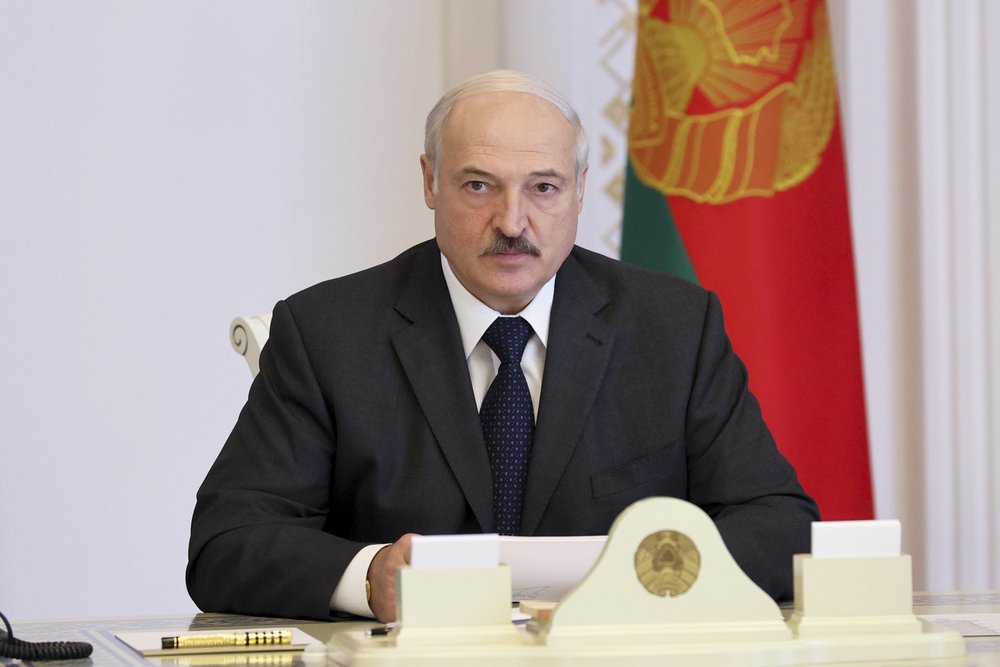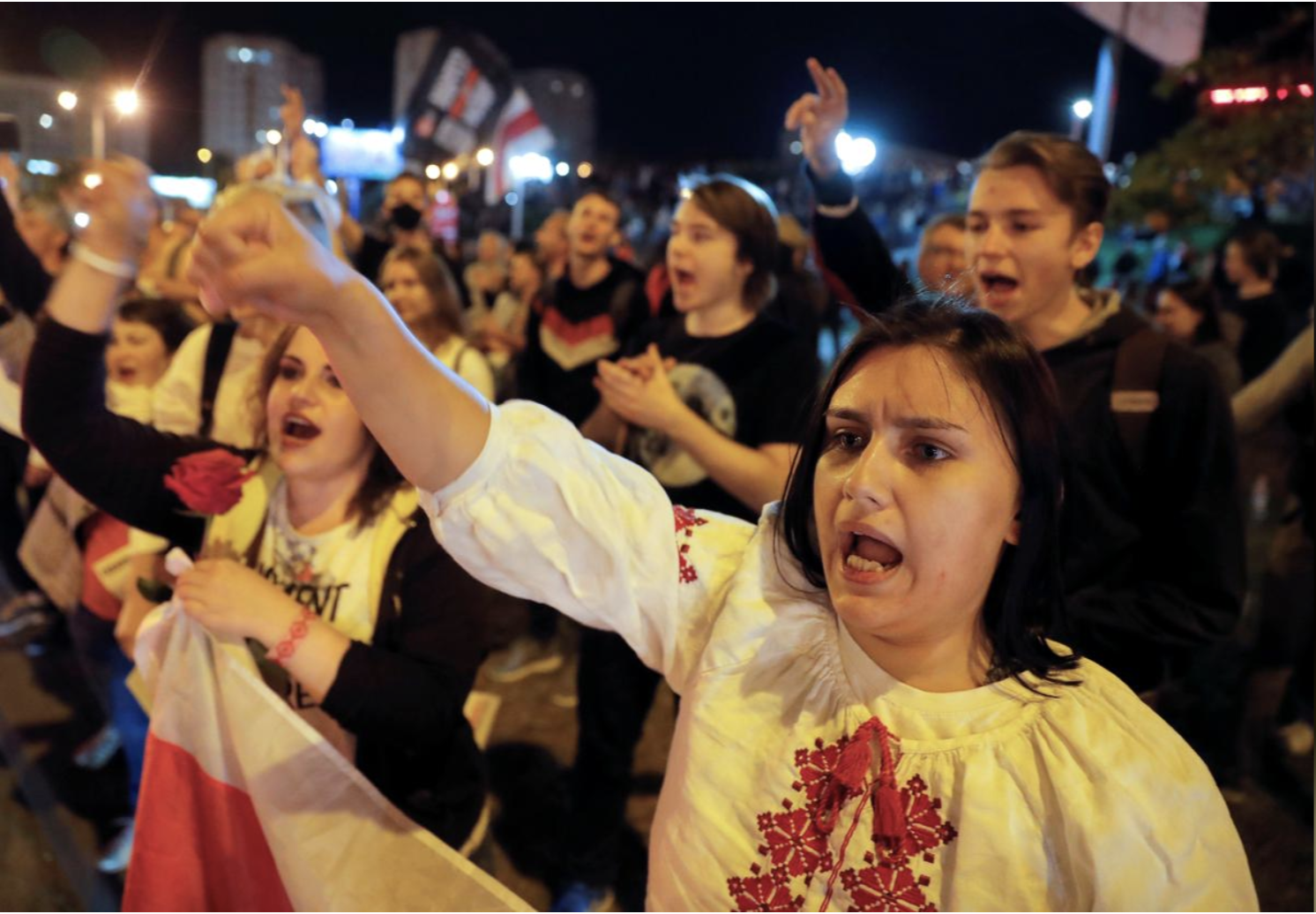
Belarusian President Alexander Lukashenko listens during a meeting in Minsk, Belarus, August 13, 2020. /AP
Belarusian President Alexander Lukashenko listens during a meeting in Minsk, Belarus, August 13, 2020. /AP
The Belarusian leadership began releasing thousands of detainees and issued a rare public apology on Thursday as a concession move to quell nationwide street protests that pose the biggest challenge to President Alexander Lukashenko's 26-year rule.
The move came as European countries condemned the police violence and the European Union was set to discuss possible sanctions on Friday.
Hundreds of friends and relatives, many of them in tears, stood outside a detention center in Minsk waiting to give food, water and blankets to people emerging from inside in the early hours of Friday.
Some of the protesters had bruises and were described as being tightly packed inside cells. Some complained of mistreatment. Deputy Interior Minister Alexander Barsukov denied the prisoners were abused and said all the detainees would be freed by morning.
Sergei, one of the freed detainees, told Reuters there had been 28 people in a cell that would normally contain five. Prisoners took turns to sleep, he said, and were given a single loaf of bread to share out over two days.
"They did not beat me in the cell, they took me out of the cell and beat me there," said Sergei, who declined to give his last name.
At least two protesters have died and around 6,700 were detained this week in a crackdown following Lukashenko's contested re-election that has prompted the West to consider new sanctions on Minsk.
"I take responsibility and apologies for injuries of random people at the protests who got caught in the middle," said Minister of Internal Affairs Yuri Karayev.
Another presidential ally, head of a national state council Natalya Kochanova, said on Thursday that Lukashenko had ordered an urgent review of the detentions.
"We don't fight, we don't need war," she said.

A woman chants during an opposition rally to protest against police brutality and to reject the presidential election results in Minsk, Belarus, August 13, 2020. /Reuters
A woman chants during an opposition rally to protest against police brutality and to reject the presidential election results in Minsk, Belarus, August 13, 2020. /Reuters
International pressure
The EU partially lifted sanctions, imposed over Lukashenko's human rights record, in 2016, but could introduce new measures at an extraordinary meeting on Friday. Germany summoned the Belarusian Ambassador.
In Minsk, ambassadors from EU countries laid flowers at the site where one protester died, as a crowd cheered and chanted.
"We are here to mourn the loss of life and also to show solidarity with the victims of the violence and abuse that has taken place over many Belarusian towns and cities over the last few days," EU envoy Dirk Schuebel told reporters afterward.
Russia expressed concern over what it depicted as attempts by external forces to destabilize Belarus.
Russia's foreign ministry on Thursday backed Lukashenko, claiming it knew of "clear attempts at outside interference," saying it was "concerned" at the unrest, and urged Lukashenko to "terminate the use of force against your people immediately."
Protesters form 'solidarity chains'
An estimated tens of thousands of people, many wearing white and holding flowers and balloons, lined roads and filed through the capital Minsk to protest against police brutality and the result of Sunday's vote, AFP reported.
Similar human chains are also reported by local media in other cities, backed by at least 10 television presenters and reporters from the state media who resigned in solidarity.
Footage showed them chanting "elections" and "go away."
(With input from agencies)
Click on the right of the image to see the next one.
Check out The China Report, our new weekly newsletter. Subscribe here!